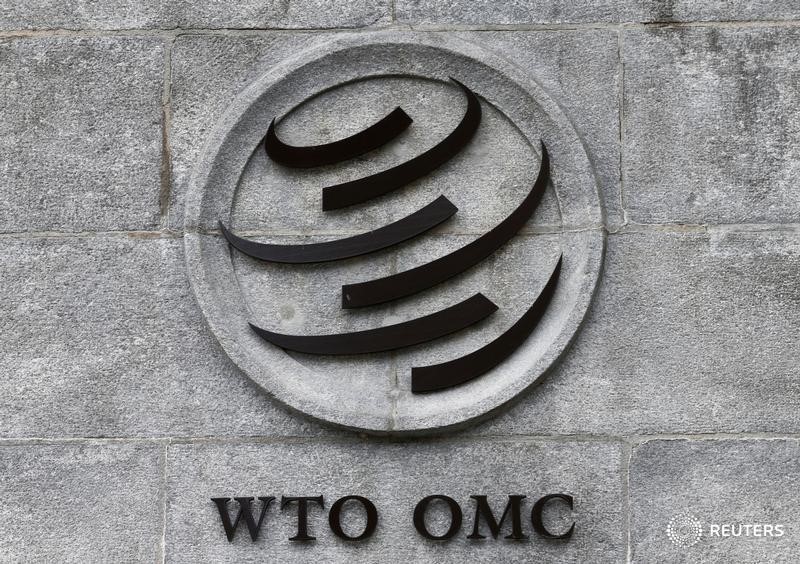Fannie Mae, Freddie Mac shares tumble after conservatorship comments
(Bloomberg) -- The World Trade Organization is coming under fresh criticism from Washington, this time from a Midwestern lawmaker who sees the coronavirus pandemic as an opportunity to rebuild America’s standing in the global economy.
Senator Josh Hawley, writing in the New York Times (NYSE:NYT) op-ed page on Tuesday, called for the abolition of the WTO, blaming the Geneva-based arbiter of international commerce for overseeing a system that he argued has failed American workers. The U.S. needs to stop Chinese imperialism and renegotiate trade deals with allies, he wrote, saying that “abandoning the WTO is a start.”
Hawley followed up Thursday by introducing a resolution in the Senate to withdraw the U.S. from the WTO.
While no authority exists for the U.S. government to close down the WTO single-handedly, the complaints from the junior Republican senator from Missouri echo many of those the Trump administration has voiced since taking office in 2017. It also reflects the hardening of some Americans’ views about China and the growing list of scapegoats sought for the economic calamity the country now faces.
Yet the U.S. Trade Representative’s office issued a reminder on Wednesday of how the WTO can work to the country’s advantage. In a long-running dispute between Boeing (NYSE:BA) Co. and Airbus SE (OTC:EADSY), pitting the U.S. against the European Union, USTR Robert Lighthizer said the U.S. has fully complied with WTO recommendations, leaving “no valid basis for the EU to retaliate against any U.S. goods.”
Hawley’s call to scrap the organization that the U.S. helped design a quarter century ago reignited a debate -- with historians, economists and the business blasting his idea as ill-conceived and badly timed. One of his claims was that the WTO did “next to nothing to stop Chinese theft of American intellectual property and products.”
Simon Lester, an associate director at the Washington-based Cato Institute, said the senator has it backwards.
“The WTO, with its agreement on Trade‐Related Aspects of Intellectual Property Rights, does a lot,” Lester wrote in a blog post. “If the U.S. pulls out of the WTO, it loses one of the key mechanisms to press China to improve its protection of these rights.”
Read More: The U.S.-China War Over Trade and Tariffs, Explained: QuickTake
Hawley’s op-ed also argues that because of the WTO “foreign agriculture won concession after concession, while American farmers struggled to get fair access to markets.”
That’s not borne out in the data. The U.S. farming industry has been a major beneficiary of the WTO’s 24% to 36% average reduction in global agricultural tariffs. U.S. agricultural exports have more than tripled since the WTO was established -- growing to $143 billion in 2018 from $44 billion in 1994, according to data from the U.S. Department of Agriculture.
Even though the U.S. can’t abolish the WTO unilaterally, the timing of Hawley’s plan makes it interesting. Every five years, Congress can introduce and vote on a joint resolution to withdraw congressional approval of the WTO, and that opportunity comes up this year.
But U.S. business groups argue that withdrawing from the WTO would result in retaliation and a balkanized global economy that hinders America’s economic recovery.
By one estimate, dissolving the WTO and nullifying existing trade agreements would erase 30% of the total gains from trade, which would amount to a $2.7 trillion loss in global gross domestic product.
“Abandoning the WTO would only invite other countries to close their markets to U.S. exports,” said Myron Brilliant, the executive vice president and head of international affairs at the U.S. Chamber of Commerce. “With 95% of the world’s consumers outside our borders, keeping our trade lanes open will be critical to recovery.”
(Updates with Hawley resolution in third paragraph)
©2020 Bloomberg L.P.
